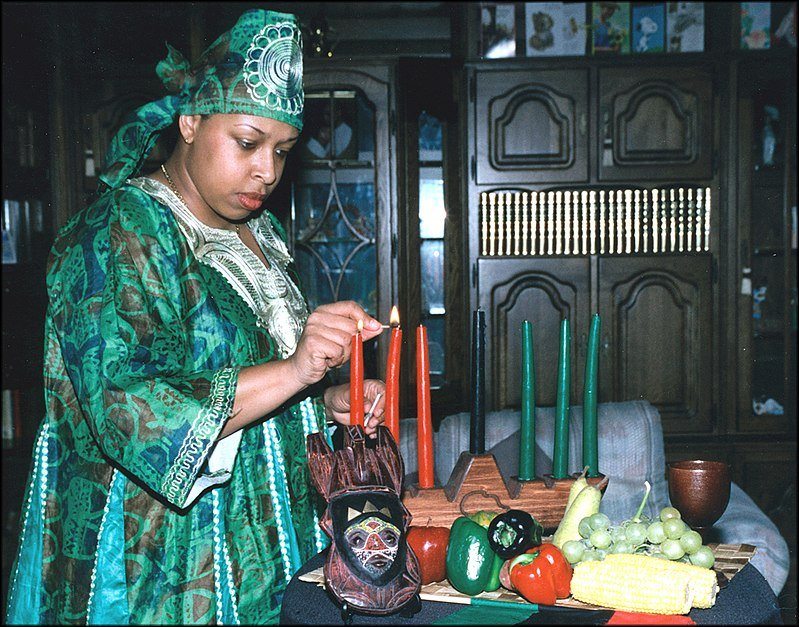Created in 1966 by Africana Studies professor, Dr Maulana Karenga, Kwanzaa, which is an African American and Pan-African holiday is observed annually from December 26 to January 1.
The holiday, which is not just observed within the African-American community but also the diaspora celebrates African heritage and culture in both communities.
According to Medium, Dr Karenga drew inspiration to create Kwanzaa after reading about popular Zulu harvest festival Umkhosi Wokweshwama, which is celebrated annually around December.

The name Kwanzaa is taken from the Swahili phrase “matunda ya kwanza” which means “first fruits of the harvest”.
Activities during the week long festivities include the celebration of the seven principles of Kwanzaa which is also referred to as Nguzo Saba. One principle is allocated to each of the seven days of the festivities. The principles include:
- Umoja (Unity): To strive for and to maintain unity in the family, community, nation, and race.
- Kujichagulia (Self-Determination): To define and name ourselves, as well as to create and speak for ourselves.
- Ujima (Collective Work and Responsibility): To build and maintain our community together and make our brothers’ and sisters’ problems our problems and to solve them together.
- Ujamaa (Cooperative Economics): To build and maintain our own stores, shops, and other businesses and to profit from them together.
- Nia (Purpose): To make our collective vocation the building and developing of our community in order to restore our people to their traditional greatness.
- Kuumba (Creativity): To do always as much as we can, in the way we can, in order to leave our community more beautiful and beneficial than we inherited it.
- Imani (Faith): To believe with all our hearts in our people, our parents, our teachers, our leaders, and the righteousness and victory of our struggle.

The celebration of the seven principles is characterized

The holiday is also marked with feasts known as “karamu”, poetry, African dance, music and a host of other culture-based activities.










